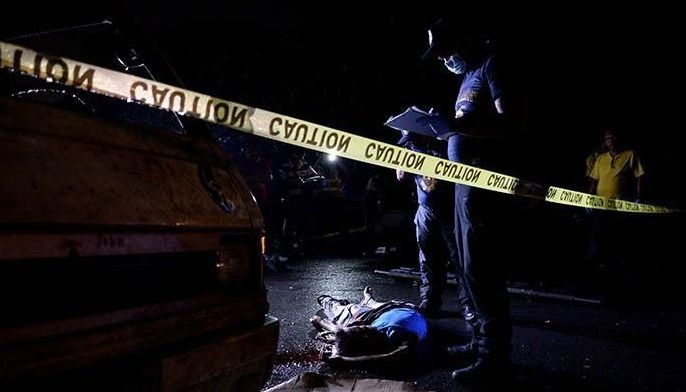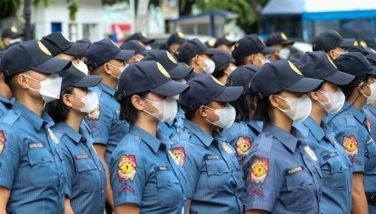Speed up massacre trial, court urged
MANILA, Philippines - Various groups called on the government to speed up the trial of the Maguindanao massacre case as protest rallies yesterday highlighted the third anniversary of the murders, considered the worst single incident of electoral violence in recent Philippine history and the single deadliest attack on the press ever.
This developed as President Aquino yesterday vowed to push for more judicial reforms and ensure that the trial of the Maguindanao massacre and other cases would be expedited.
“As the saying goes, ‘Justice delayed is justice denied,’ so our courts must work efficiently. We must have courts that are impartial and fair in the verdicts they hand down,” Aquino said.
“If the courts demonstrate impunity at the top, then the lowest regional trial courts will follow suit. This is why I have been so focused on reforming our justice system,” he said.
Aquino was keynote speaker at the 9th Media Nation Summit in Tagaytay City that coincided with the third anniversary of the Maguindanao massacre where journalists also fell victim to the carnage.
“In cases of media killings, for example, we in government are demanding the apprehension of suspects and the filing of charges that stick, resulting in justice for all involved,” Aquino said in his speech.
“In other cases of violence involving media, we have taken affirmative and just action. For instance, you may have heard of a governor who was suspended after assaulting a broadcaster on air. More than anything, the protection of the rights of all – journalists included – relies on the fair and impartial dispensation of justice,” he said.
Aquino ordered the one-year suspension of Northern Kalinga Gov. Jocel Baac after a video showed him bursting into the studio of dzRK radio and whacking a broadcaster on the head with a microphone.
Anchor Jerome Tabanganay said Baac apparently was irked by the station’s commentaries on illegal gambling and logging in the upland province.
Aquino warned in his order handed down over the weekend that similar action will be dealt with more severely.
The Philippines is tagged as one of the most dangerous countries in the world for journalists, highlighted by the killing of over 30 journalists in the Maguindanao massacre.
On Thursday, presidential spokesman Edwin Lacierda said Malacañang remained committed in ensuring that justice would be served to the massacre victims.
At least 58 people were killed, including 32 members of the media on Nov. 23, 2009 when around a hundred gunmen stopped a convoy on its way to file the candidacy of now Maguindanao Gov. Esmael Mangudadatu.
The victims were systematically murdered and buried in shallow pits or dumped in grasslands near a remote highway in Sitio Masalay, Ampatuan town.
Groups across the nation espousing free expression and press organizations marked the third anniversary of the massacre yesterday calling for the speedy resolution of the case. Several sectors also lamented the slow pace of the trial.
Many nations, including the United States, are calling on the Philippine government to improve the investigation and prosecution of cases of extra-judicial killing, according to US Ambassador Harry Thomas Jr.
Thomas issued the statement as he extended his government’s condolences to the families of the 58 victims as they observed the third anniversary of the brutal massacre in Maguindanao, according to Tina Malone, US embassy public affairs officer.
Thomas said the call for the Philippines to improve its efforts in resolving cases of extrajudicial killings was made by several nations during the UN Human Rights Commission’s Universal Periodic Review (UPR) of the Philippines.
Thomas also welcomed President Aquino’s pledge to bring those responsible for the crime to justice, end impunity for the perpetrators, and demonstrate to the world the Philippines’ commitment to upholding the rule of law and protecting human rights.
“We appreciate the efforts of the officials from the Philippine National Police (PNP), Department of Justice (DOJ), and courts working to bring closure to this case. We shall never forget the victims of that merciless act committed in Maguindanao on Nov. 23, 2009,” Thomas said.
The Canadian embassy in Manila said they are trusting that the trial of suspects in the Maguindanao massacre will be done in a timely and credible manner.
“In remembering the victims, Canada understands that the massacre was not only a terrible act of violence but also an attack on the values shared by Canadians and Filipinos. Human rights, freedom of the press and freedom of expression are the cornerstones of our societies, and must be respected and protected,” the embassy said in a statement.
Slow pace
Human rights groups said the slow pace of trial and the government’s failure to arrest nearly a hundred suspects raise grave concerns for the safety of witnesses and for obtaining justice for the victims.
“Canada recognizes the process to bring those responsible to justice continues, and trusts this will be done in a timely and credible manner. Moving forward, Canada is hopeful electoral violence in the Philippines will remain a thing of the past,” the embassy added.
UK Ambassador Stephen Lillie said a swift resolution and successful prosecution of those involved in the Maguindanao massacre would reinforce the UK and Philippines’ shared aspiration of upholding a democratic society. While nothing can be done to bring back the lives lost, bringing the perpetrators to justice will go some way to helping the victims’ families cope with their loss, Lillie said.
The UK condemned the brutal massacre in Maguindanao and called for urgent action to bring the perpetrators to justice, noting that effective action will be crucial in maintaining confidence in the Philippines’ commitment to protect human rights.
Even the communist rebels decried the slow pace of justice for the victims of the massacre.
National Democratic Front Philippines-Mindanao chapter spokesman Jorge Madlos said three years have passed and nothing has happened yet to the trial on the case.
Media groups led by Center for Community Journalism and Development, Center for Media Freedom and Responsibility, Freedom Fund for Filipino Journalists, National Union of Journalists of the Philippines, Philippine Center for Investigative Journalism, Philippine Press Institute, and the University of the Philippines-College of Mass Communication led a rally at the Welcome Rotonda in Quezon City marking the third anniversary of the massacre.
The media groups also criticized the Aquino administration for failing to address the issues concerning the media.
“The families of the 58 victims of the Nov. 23, 2009 Ampatuan Massacre are starting to lose hope in the justice system, and the government has only itself to blame,” they said in a joint statement.
Other groups also held protest rallies in Cagayan de Oro City, in Cotabato City and Zamboanga City, calling on the government to speed up the trial of the case.
– Pia Lee-Brago, Janvic Mateo, John Unson, Dino Balabo, Edith Regalado, Roel Pareño, Jigger Jerusalem, Sandy Araneta
- Latest
- Trending































